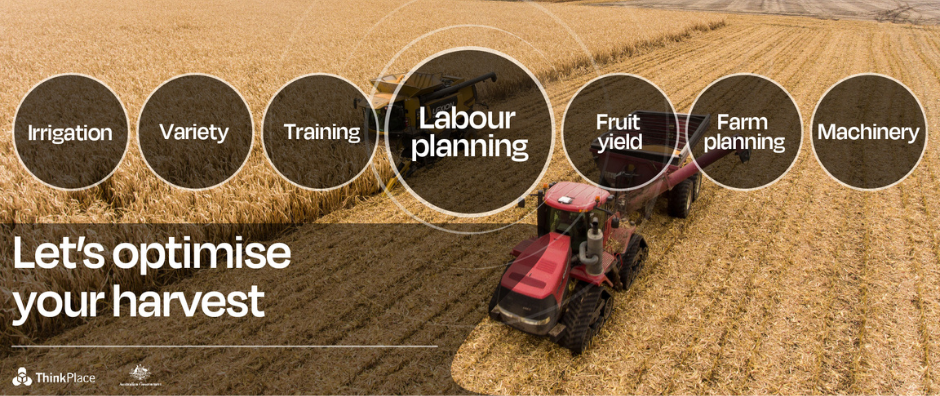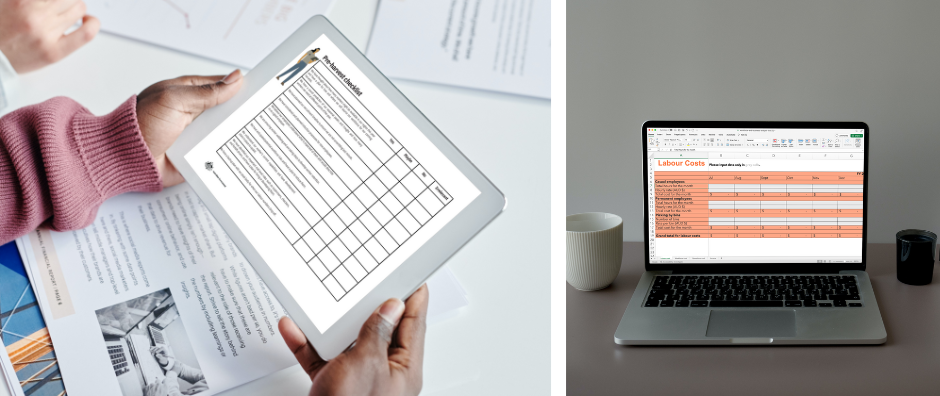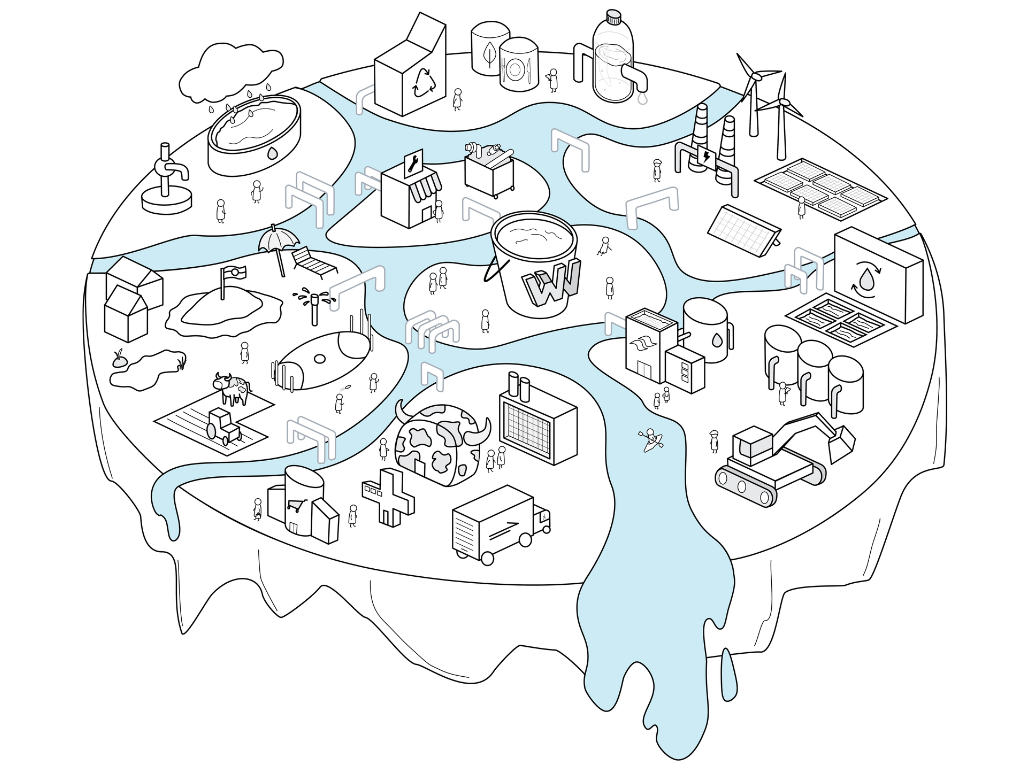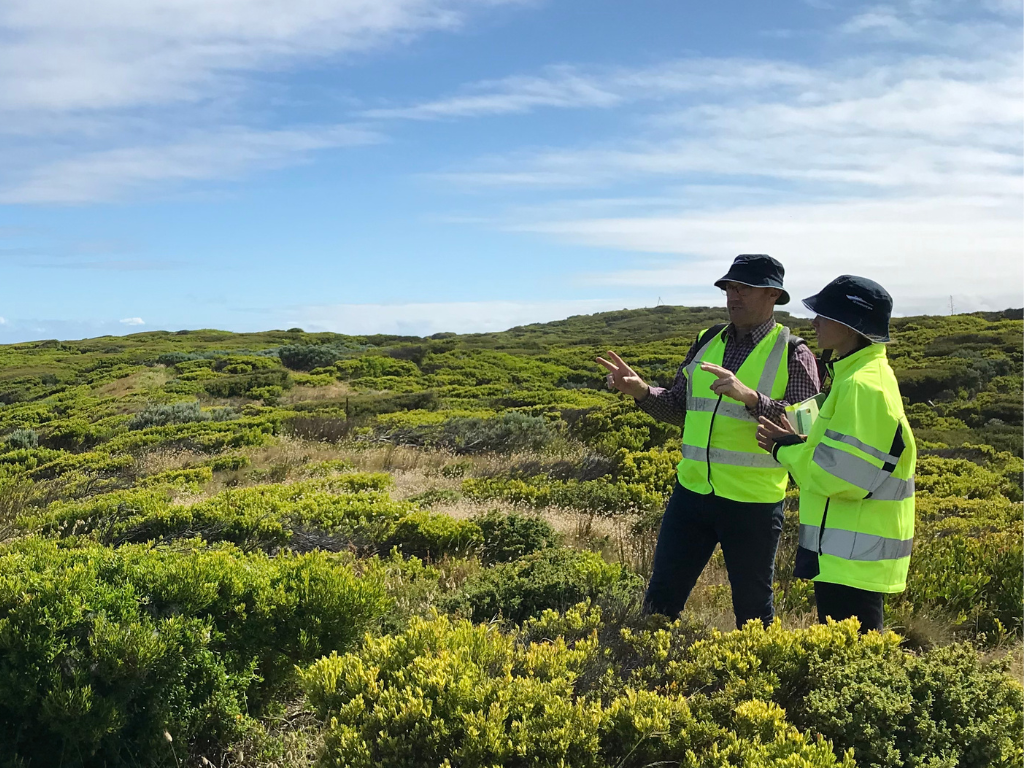Service
Futures, Strategy and Planning
STUDIO
By 2030, the Australian Government aims for the nation’s agricultural sector to grow to a $100 billion industry. To reach this goal, named ‘Ag2030’, they’ve identified that successful workforce management and planning are crucial.
In line with this vision, ThinkPlace was engaged by the Department of Agriculture, Fisheries and Forestry (DAFF), to assist in the agriculture industry’s adoption of modern workforce planning and practices. The horticulture industry – Australia’s third largest agricultural industry – was greenlighted as an ideal case study.
By designing practical resources and tools, DAFF is realising its long-term, transformative agricultural vision.

The Challenge
Australia’s horticulture sector faces ongoing workforce challenges that affect both staff recruitment and retention. Many of these challenges are tied to the nature of the industry; harvesting is often remote and physically demanding, career progression is limited, and work is transient. There are also more complex systems at play; trade, global politics, modern slavery, food security, immigration, and the Australian economy, among other factors, all affect horticultural success. For example, the unprecedented nature of the COVID pandemic was immensely destabilising. Government border restrictions were unpredictable, and labour disruptions were widespread.
These intersecting, volatile forces all limit growers’ ability to continuously plan their labour. Hence modern workforce planning and practices are essential — with a proper framework in place, growers can mitigate disruption in unpredictable scenarios.
With this scope in mind, DAFF wanted us to help them produce resources that would upskill agricultural employers and businesses, helping them adopt modern workforce management and planning practices.
“The reality is that this is hard work, people don’t realise that. We’ve started to develop this very transient workforce where people come in, they work for a week and they go ‘Actually, I don’t want to do this anymore’, and they leave. To be a grower in that sort of environment is really difficult and it makes things really hard to plan for.” – Oliver Hill, Designer at ThinkPlace
Our Response
We fulfilled DAFF’s brief by beginning a comprehensive analysis of the social, systemic and individual behaviours affecting agricultural employers’ workforce management and planning practices.
First, we undertook desktop research, building our understanding using qualitative and quantitative data. Through this process, we were able to better understand the current state of workforce management and planning within the horticulture sector. Our methods included a review of resources and documents, plus a high-level digital ethnography, exploring the conversations employees and employers were having. In addition to this, we undertook a series of interviews with farmers across Australia. Our findings were consolidated into an insights report that was presented to DAFF.
“The aim is to ensure that [the growers] have the necessary tools, resources, guidance, and information that will help them plan a workforce that will help them build a resilient business.” – Sneha Vaidya, ThinkPlace Executive Designer
Our findings informed the need for behaviour change intervention. To understand the nuances and complexities of personas, motivations and intentions within the industry, we developed context-driven behaviour change models. We then tested prototypes on peak bodies and growers throughout Australia, which enabled us to build a suite of tools that helps small-to-medium-sized growers manage and plan their workforce.
The suite of tools we built encompasses a Pre-Harvest Checklist, a Workforce and Business Analysis tool, and a set of case study videos that drive home the value of workforce planning and management.
The Impact
The tools developed through this project have been published by DAFF, and are being actively promoted through the Government’s engagement with Australia’s agricultural industries.
The extensive networks that were built across the sector through different stages of the project, including with peak associations, local grower associations, and growers themselves, have also driven organic momentum in the uptake of these tools. Informal feedback from these bodies has been consistently positive, with particular recognition for the practicality and adaptability of the tools.
In time, a formal impact evaluation of DAFF’s behaviour change pathway will provide qualitative data, showing just how effective the Pre-Harvest Checklist and Workforce and Business Analysis tools are for small-to-medium-sized agricultural businesses.
By futureproofing their businesses and consolidating practices, the goal is that growers will more easefully do their part in bringing the Ag2030 vision into fruition.

This project with the Department of Agriculture, Fisheries and Forestry saw ThinkPlace receive a Good Design award for Design Research. Here is what the awards jury had to say about our work:
“This is an essential and topical project that enhances a dynamic workforce. The impact and application of the tools demonstrates why they have been so well received by the agricultural industry.”
Thanks
We’re grateful to all of the farmers, growers, peak associations, and local grower associations who gave their time, expertise and feedback to get these tools off the ground.





